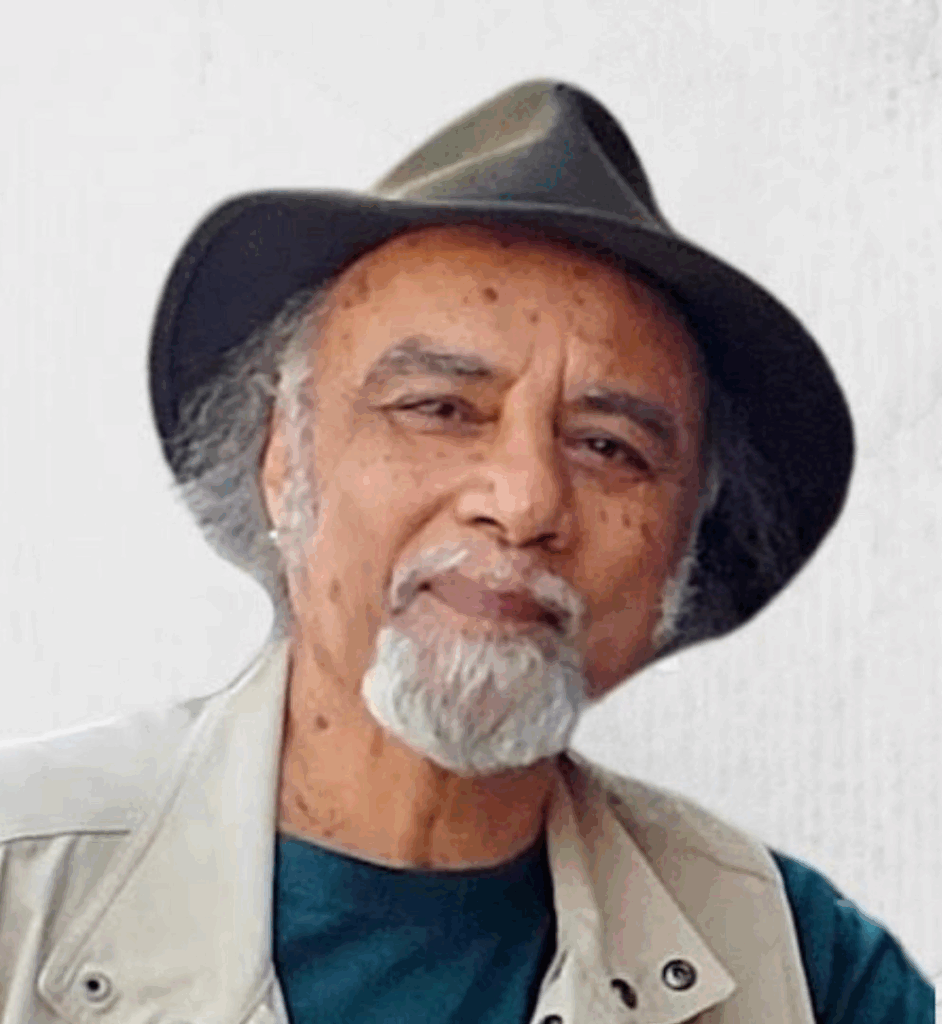URS: July 29, 2024

I recently went to be with a dying friend. He spoke only in whispers, or none at all. Soon after I arrived he raised his hand from his bed, gesturing for me to come close. I took his hand in mine and bent over him. His eyes were wide and steady, holding mine in a gaze as piercing and intimate as any I have ever experienced. It felt as if we both stopped breathing, it was that quiet.
I’ve known this man for half a century. We’ve played, worked, and taught together, travelled to far-off dusty lands, argued and laughed, sung and prayed together, and now there was just this silent gaze that held the world between us. Of course there was sadness in our gaze, tears slowly welling up in our eyes as we felt the vastness of our journey together, knowing that now we had come to its end.
But there was something else too, within and behind the sadness. It showed in the slight smile on our lips. I want to call it joy — it’s the only word that comes close — a joy that encompassed the sadness and was struck through with thankfulness for everything we’d shared together, and for the wonder of our being here at all. It was an ancient joy, something beyond our lives, a joy as ancient as the sky and beautiful in its silence.
These kinds of tender, intense moments come rarely in our lives, but when they do they teach us something fundamental about life and how we might live intimately with each moment and free from suffering.
In the lojong slogans of Atisha, a list of 59 mind-training instructions from the Buddhist tradition, Slogan #21 always leaped out at me for its daring and seeming absurdity: Always maintain only a joyful mind. How could this be? Wouldn’t this instruction be the epitome of spiritual bypassing? In the face of all the meanness, sadness and suffering of the world, how could one justify maintaining “only a joyful mind?”
The word “mind” in this slogan doesn’t mean the “thought-mind” — having only pleasant, happy thoughts. “Mind” here means something more intimate that’s behind all that, something closer to the way of our presencing in the moment — how we arrive, here and now.
How we arrive, here and now — this how is the way and majesty of joyful mind. It’s not a cover-up or pretense that tries to mask the sadness and pain we experience in our lives. It just allows us to arrive to whatever is happening free from fear, with a compassionate, loving heart. And even deeper than that, it’s the joy of our cosmic mutuality, the joy that knows, in Kerouac’s words, “everything is all right forever and forever and forever.”
I’m not sure maintaining this ground of joy in our hearts is something that can be taught, especially because it’s so easily misinterpreted. It’s not some kind of spiritual trick to see the world through rose-colored glasses. I believe that fundamentally it arises from our recognition and openness to the unconditional love that makes all of this happen, the mysterious gift of anything being here at all.
When we’re open to the joy of being like this, the joy bigger than our individual lives, it allows us not to take everything so seriously. Yes, it gifts us with a great depth of communion, but it also frees in us a light-heartedness, a sense of well-being and ease, and of humor and playfulness. We’re able to sing out with each other that silly song:
- Joy to the world!
- All the boys and girls!
- Joy to the fishes in the deep blue sea,
- Joy to you and me!
Pir Elias Amidon
August 7, 2024
Dear Friends,
Tomorrow we will be holding a special Sama, with a zikr dedicated to the life and passing of Murshid Kiran Rana. Those of you who knew him, or were lucky enough to be in his presence and receive his teachings, or to sing Qawwali with him, know what a wise, unique, loving soul he was.
Over the last half-century Kiran dedicated his life to inspiring the Sufi Way. Tomorrow’s zikr is one way we will honor his life and memory, and express our gratitude for all he has given to us, and to everyone whom his life touched.
Tomorrow’s zikr will be led by Omar and Suzanne Inayat-Khan, and is called
The Zikr of Peace
The Zikr of Peace is the one musical zikr that Pir-o-Murshid Inayat Khan left to us, and as such it holds a special place in our hearts. May our Sama prayer tomorrow fly to Murshid Kiran and make him smile, blessing his journey Home.
With all love, Pir Elias
